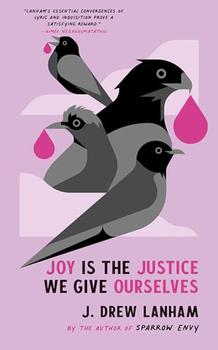Summary | Excerpt | Reading Guide | Reviews | Beyond the Book | Read-Alikes | Genres & Themes | Author Bio

Critics' Opinion:
Readers' Opinion:
First Published:
Sep 2019, 336 pages
Paperback:
Jun 2020, 336 pages
 Book Reviewed by:
Book Reviewed by:
Elisabeth Cook
Buy This Book
This article relates to Cantoras
 The small country of Uruguay (about the size of Missouri) is bordered by Argentina to the west, Brazil to the north, and the Atlantic to the south and east. Military rule began there in 1973 following a coup conducted in cooperation with then-president Juan María Bordaberry (1928-2011), and lasted for the following 12 years. During this time, the Uruguayan military committed numerous human rights abuses, and at one point held the largest percentage of political prisoners in the world.
The small country of Uruguay (about the size of Missouri) is bordered by Argentina to the west, Brazil to the north, and the Atlantic to the south and east. Military rule began there in 1973 following a coup conducted in cooperation with then-president Juan María Bordaberry (1928-2011), and lasted for the following 12 years. During this time, the Uruguayan military committed numerous human rights abuses, and at one point held the largest percentage of political prisoners in the world.
The years leading up to 1973 set the stage for the events that produced the military regime. In the late '60s, the Tupamaros, a leftist revolutionary group, gained influence in Uruguay during a time of poor economic conditions and public unrest. Jorge Pacheco Areco, who came to power from the vice presidency when the newly elected president died in 1967, outlawed leftist news sources and political parties, and requested assistance in suppressing the Tupamaros from the American government. (At the time, the U.S. was concerned about communism spreading in Latin America, and worked to exercise influence over countries it viewed as potentially sympathetic to U.S. interests, such as Uruguay and Brazil.) Tensions continued to increase, with the Tupamaros going so far as to kidnap Uruguayan and American government officials, and the Uruguayan government depending on the military to maintain control.
In 1971, citizens cast their votes in the next presidential election, and Bordaberry, the candidate for the incumbent Colorado party, won. Members of the Frente Amplio, the united leftist party, claimed their campaign had been the target of harassment. Declassified documents from the Nixon administration suggest that Brazil may have worked to rig the election against the Frente Amplio with the knowledge and approval of the U.S. government.
In February 1973, Bordaberry agreed to give the military an advisory role in the government as part of the National Security Council. He went on to dissolve the General Assembly, Uruguay's bicameral legislative branch, allowing the military to take control of the state. The new government sought to publicly align itself with Western capitalist powers, continuing to enforce an anti-communist ideology.
The military regime was ruthless in silencing citizens who opposed it, jailing thousands for political crimes, and implementing torture as standard practice. Among the imprisoned were not only Tupameros, but people associated with anti-government activity for any number of reasons, including those belonging to unions, the banned socialist and communist parties, and other organizations military members perceived as subversive.
As Carolina De Robertis shows in Cantoras, which follows the lives of five queer women throughout the middle and later years of the military regime, homosexuality was not illegal at the time, but sexual orientations and gender presentations perceived to differ from the norm were not well tolerated. The government banned those with "open sexual deviations" from serving in the military, and it wasn't uncommon for transgender people to suffer abuse.
In 1976, Bordaberry attempted to eliminate political parties in Uruguay and appoint himself permanent dictator. The military subsequently made him resign, and in the following years took steps toward reforming the government, including creating a new constitution. However, 57% of voters rejected the new constitution in 1980. As a result, the government was forced to take measures to move the nation back toward democracy. In 1984, the public elected Julio María Sanguinetti to the presidency. Sanguinetti took office in 1985, and Uruguay began its return to civilian rule.
In 2010, shortly before his death, Bordaberry received a 31-year sentence for his part in the 1973 coup, as well as crimes against humanity. Despite Bordaberry's conviction, many feel that the Uruguayan government has not sufficiently accounted for human rights violations during the dictatorship, including the disappearance of many citizens that have never been found. Some activists were especially disappointed in President José Mujica, a former member of the Tupamaros who held office from 2010 to 2015, for his failure to challenge the widespread amnesty for members of the military that Sanguinetti established following his own election.
At the same time, Uruguay is now often considered to be the most progressive country in Latin America, as well as the most socially inclusive and LGBT+-friendly. It struck down the dictatorship's anti-homosexual military ban in 2009 and legalized gay marriage in 2013 through a 23-8 Senate vote, becoming the second Latin American country to do so after Argentina. It also passed a 2018 law expanding transgender rights, which among other reforms makes it possible for trans people who were persecuted under the military regime to receive compensation.
Uruguayan dictator Juan María Bordaberry
Filed under People, Eras & Events
![]() This "beyond the book article" relates to Cantoras. It originally ran in October 2019 and has been updated for the
June 2020 paperback edition.
Go to magazine.
This "beyond the book article" relates to Cantoras. It originally ran in October 2019 and has been updated for the
June 2020 paperback edition.
Go to magazine.




Your guide toexceptional books
BookBrowse seeks out and recommends the best in contemporary fiction and nonfiction—books that not only engage and entertain but also deepen our understanding of ourselves and the world around us.